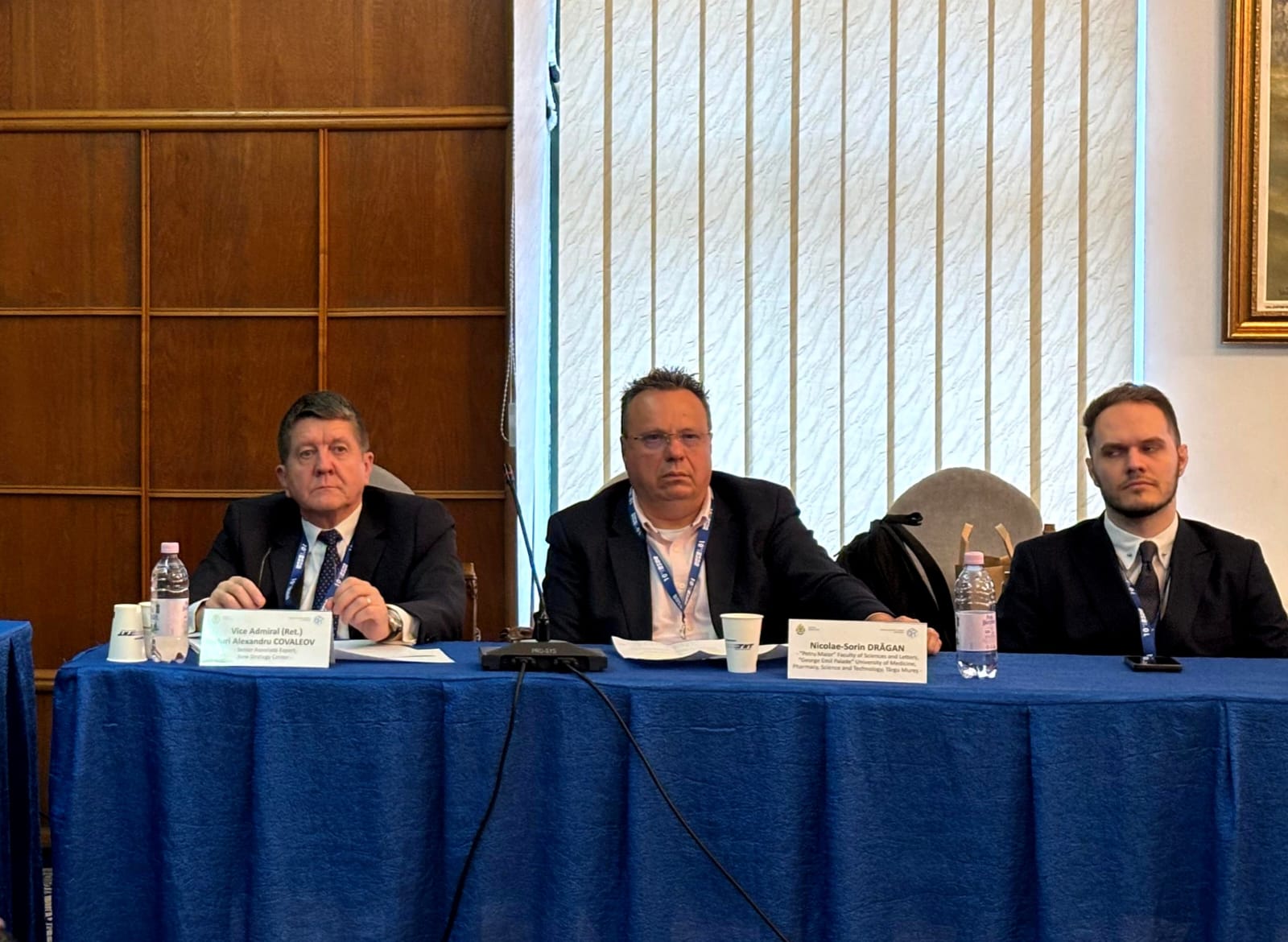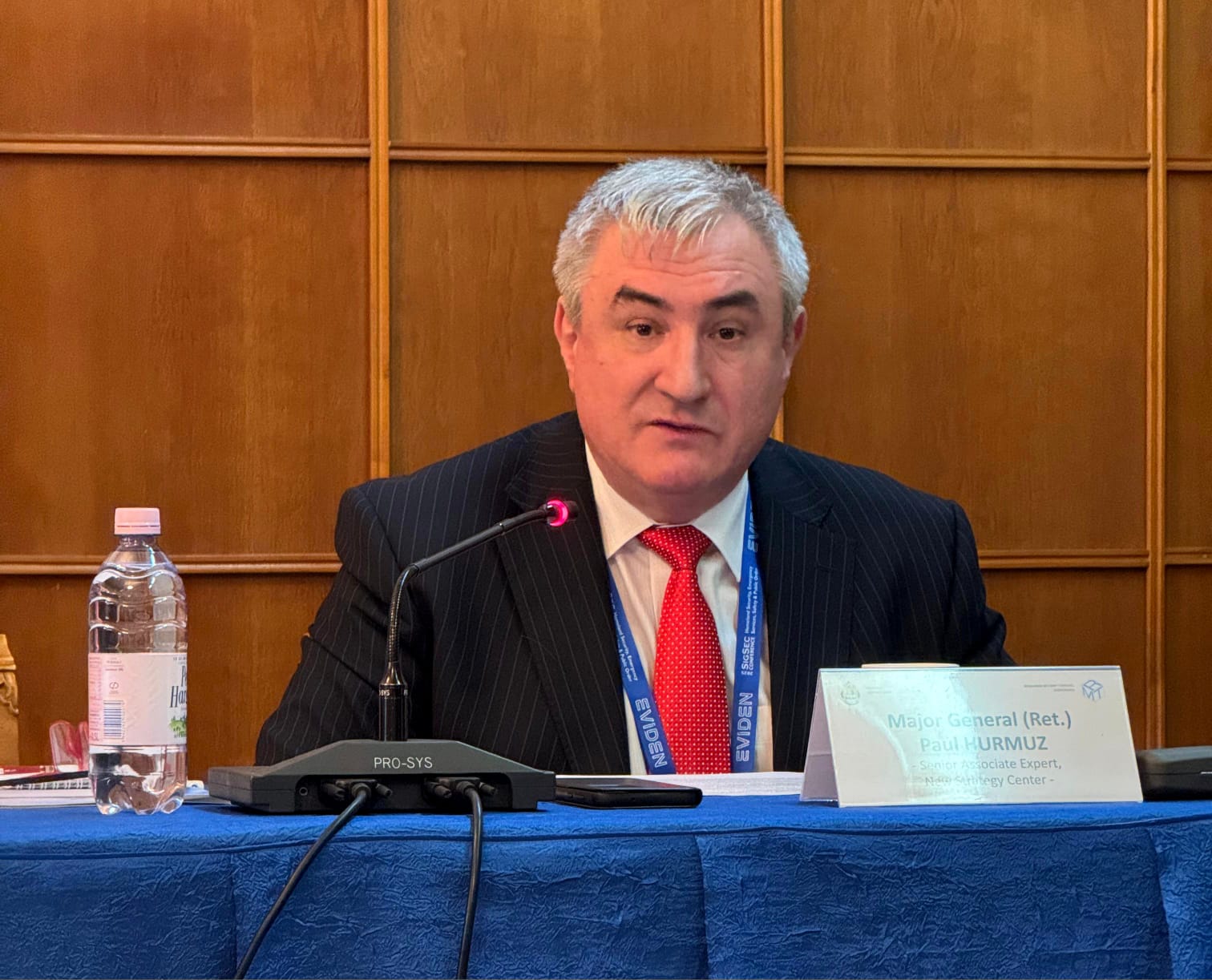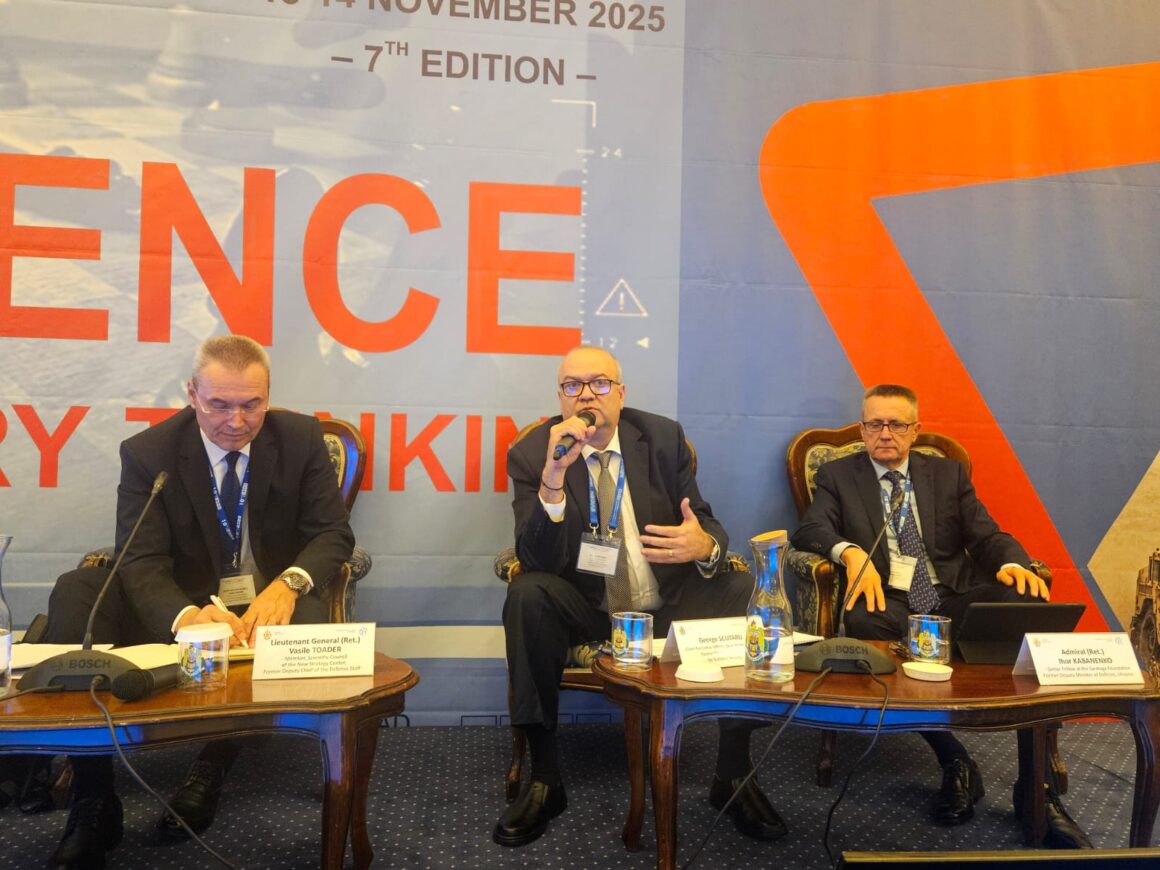The New Strategy Center organized, on Thursday, November 13, within the Romanian Military Thinking conference, a panel titled “Black Swans in the Black Sea: Avoiding Strategic Surprise and Regional Deterrence”, moderated by Lt. Gen. (ret.) Vasile Toader, member of the NSC Scientific Council. The speakers presented several scenarios that could affect the security of NATO’s Eastern Flank, the Black Sea region, and Romania, taking into account the evolution of the war in Ukraine, possible false flag incidents in the Exclusive Economic Zone, as well as events that could disrupt freedom of navigation.
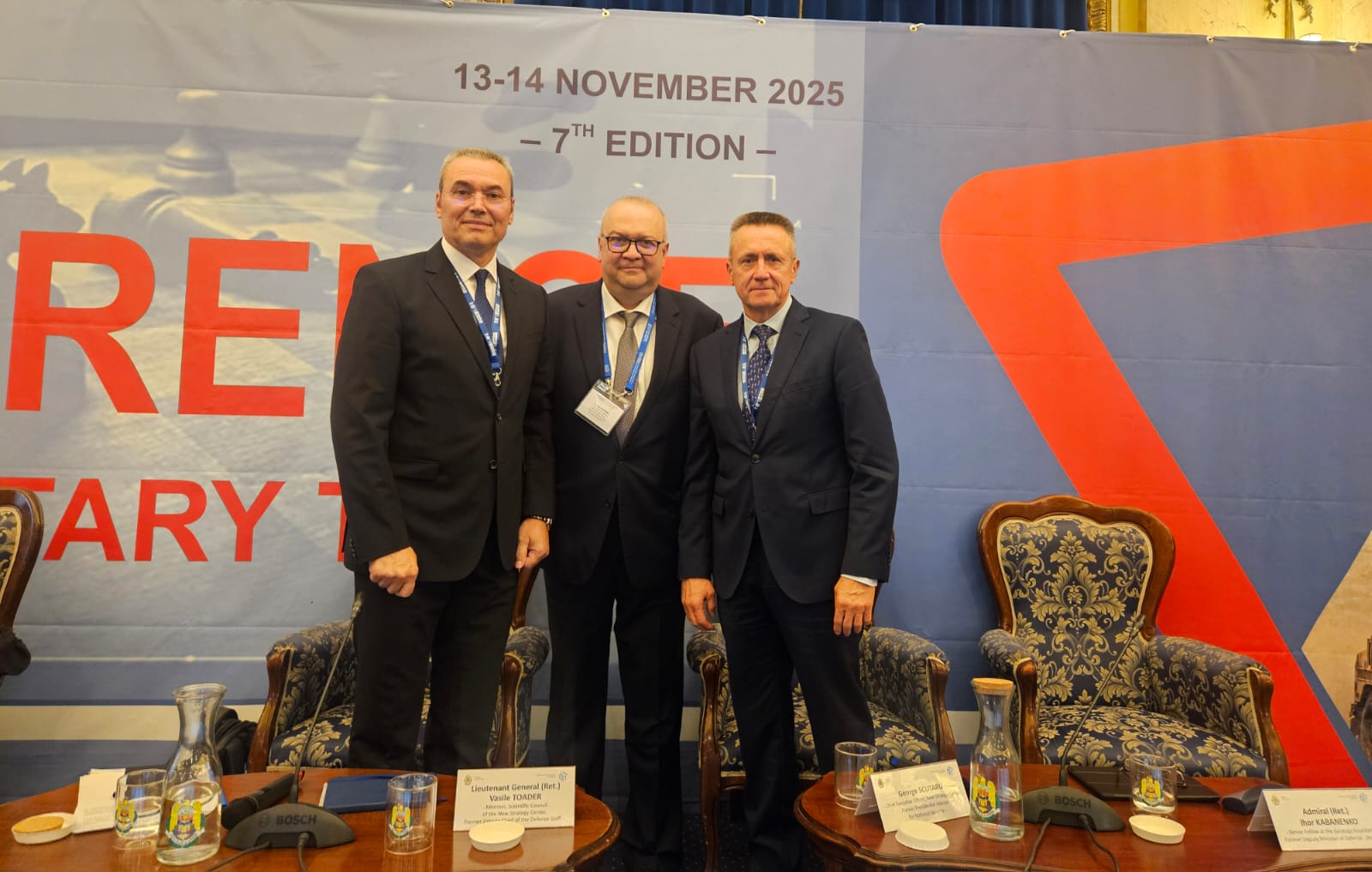
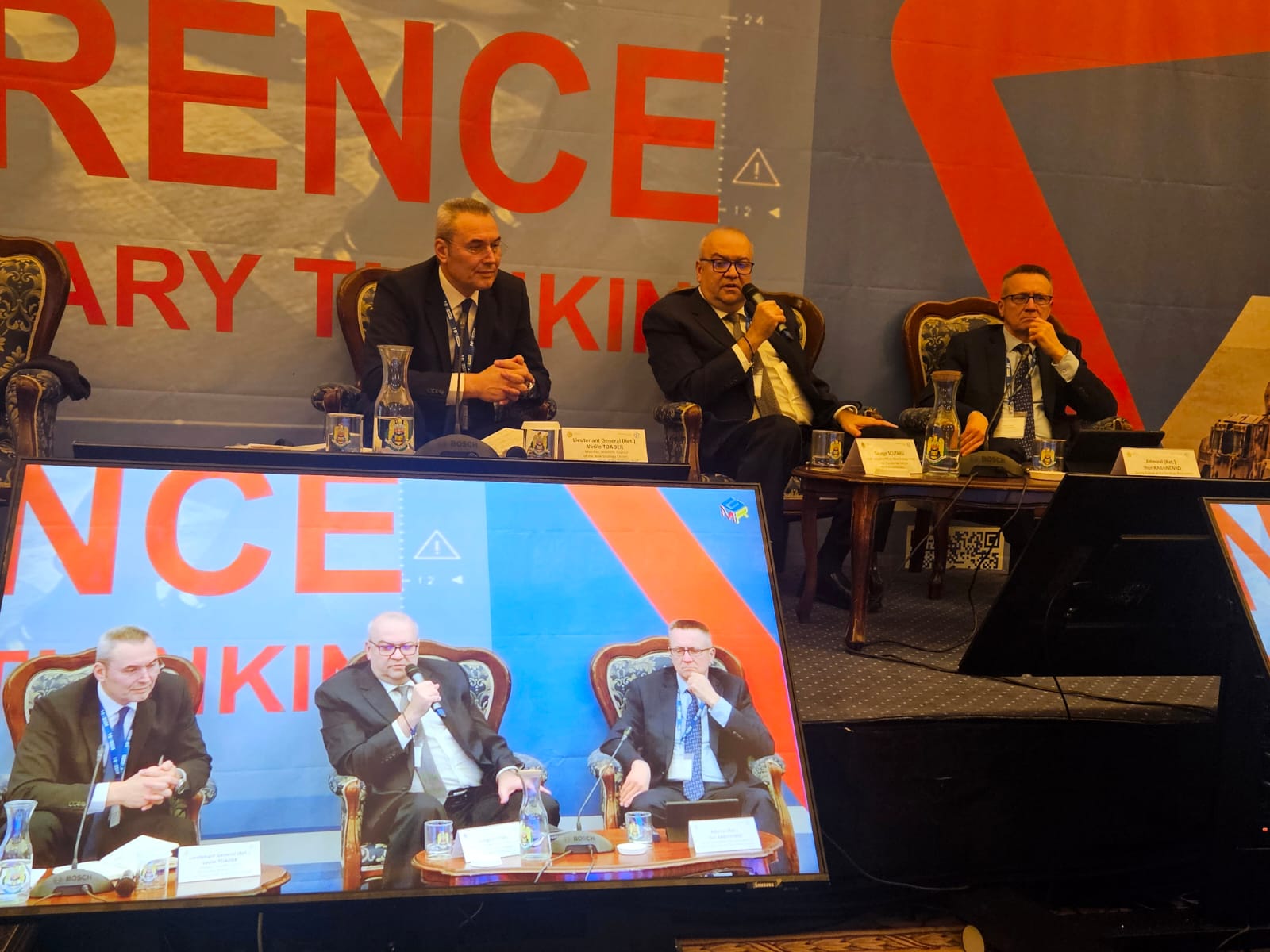
George Scutaru, Director General of the New Strategy Center, emphasized the importance of maintaining support for Ukraine in order to prevent the Russian Federation from approaching the Danube Delta, and of sustaining a high pace of defense investments in Romania to strengthen the country’s deterrence and defense capacity.
Admiral (ret.) Ihor Kabanenko highlighted technological developments and their impact on the conduct of warfare, particularly in the maritime domain. An asymmetric approach, such as the “mosquito fleet” concept, is much better suited to enclosed seas like the Black Sea or the Baltic Sea. At the same time, technological advances in unmanned systems and the rapid pace of new capability development are transforming the naval environment into a less predictable and less efficient battlefield for traditional capabilities.
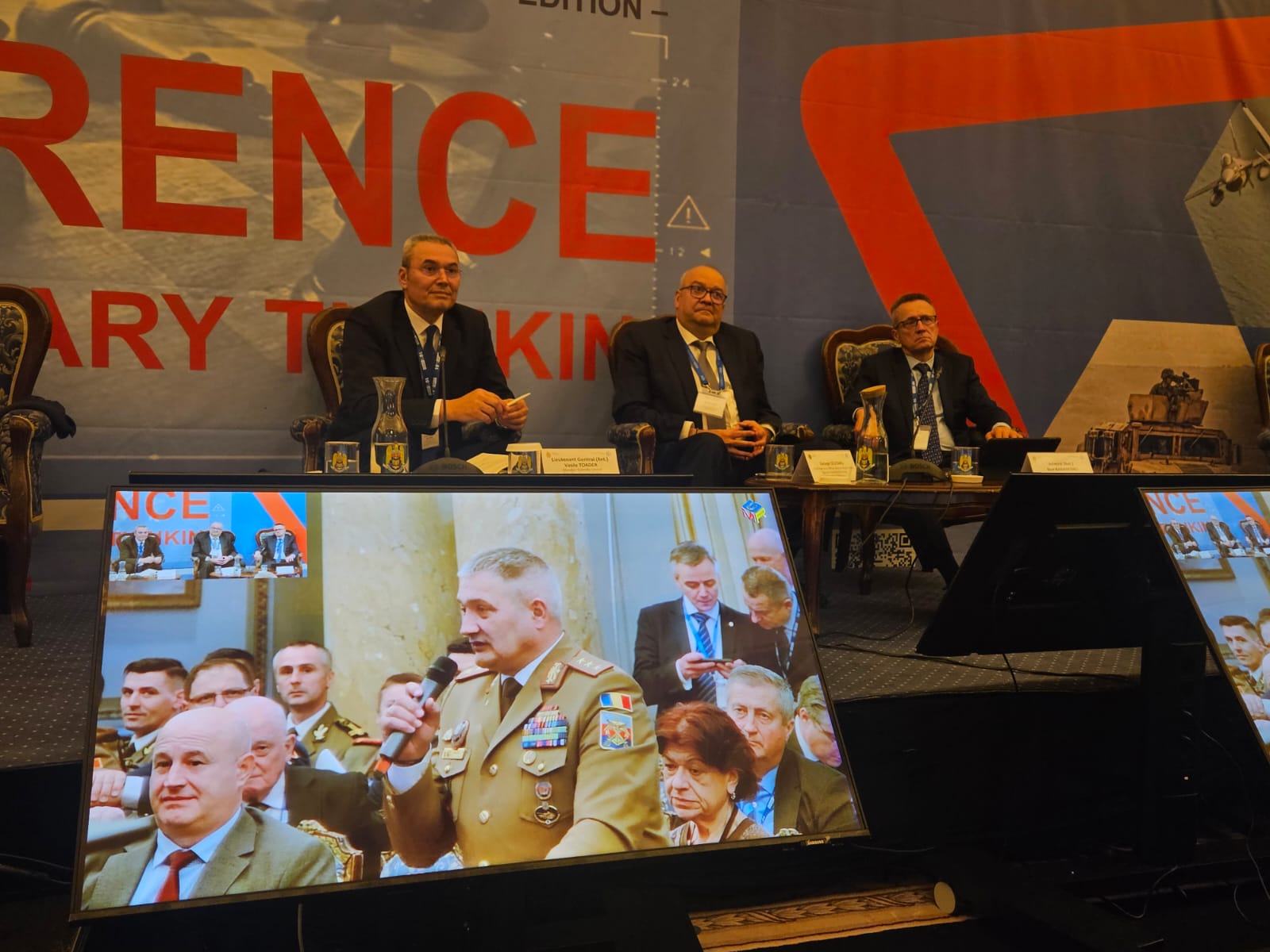
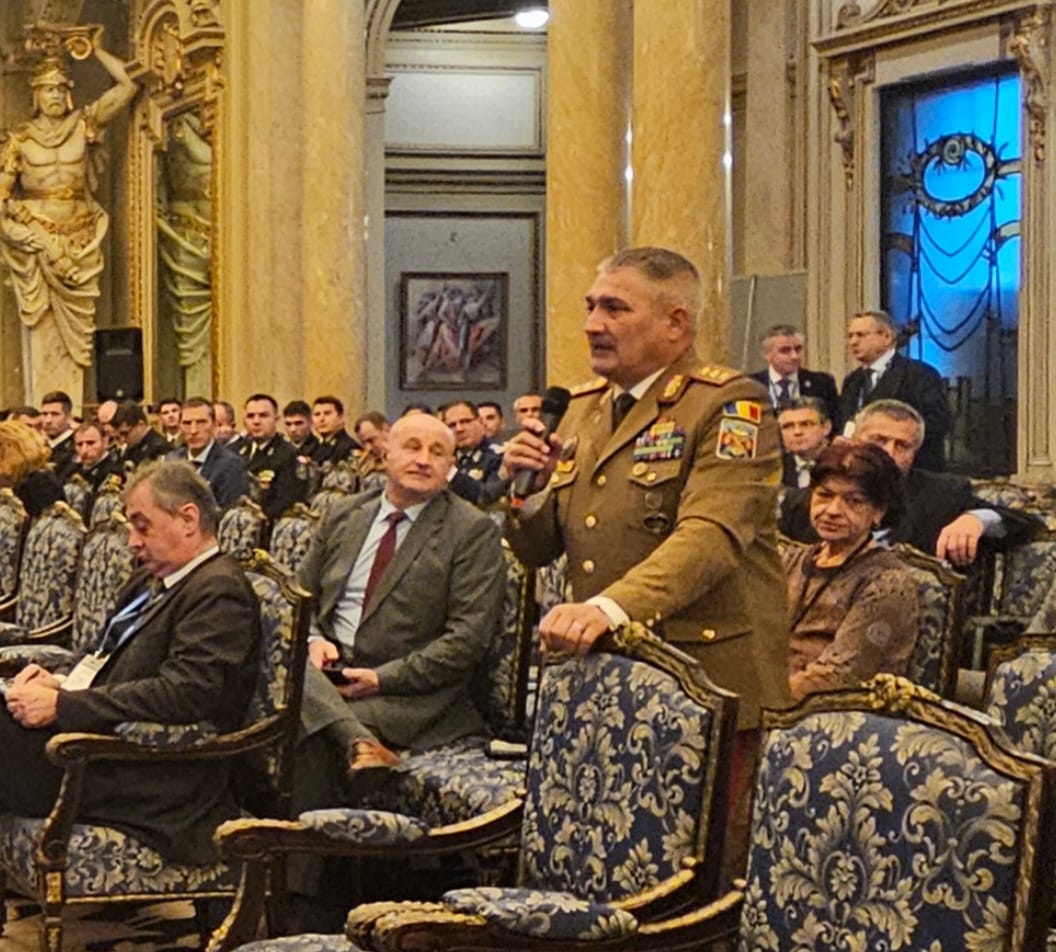
Additionally, during the conference, Maj. Gen. (ret.) Paul Hurmuz and Rear Admiral (ret.) Iuri Covaleov, Senior Associate Experts with the NSC, were speakers in the panel titled “The Role of Information and Strategic Influence in Contemporary Military Competition.”
Rear Admiral (ret.) Iuri Covaleov reviewed the various perspectives discussed during the panel and emphasized the importance of HUMINT, communications, the operationalization of ideas within intelligence, and the challenges posed by strategic influence operations.
Maj. Gen. (ret.) Paul Hurmuz delivered a presentation on the role of intelligence in supporting instruments of power, explaining how intelligence provides understanding, underpins decision-making, facilitates effective policy implementation, harnesses strategic potential, and enables the synchronization of actions. He also illustrated international cooperation in the intelligence field with historical examples such as the BRUSA and UKUSA agreements and the Five Eyes alliance.
